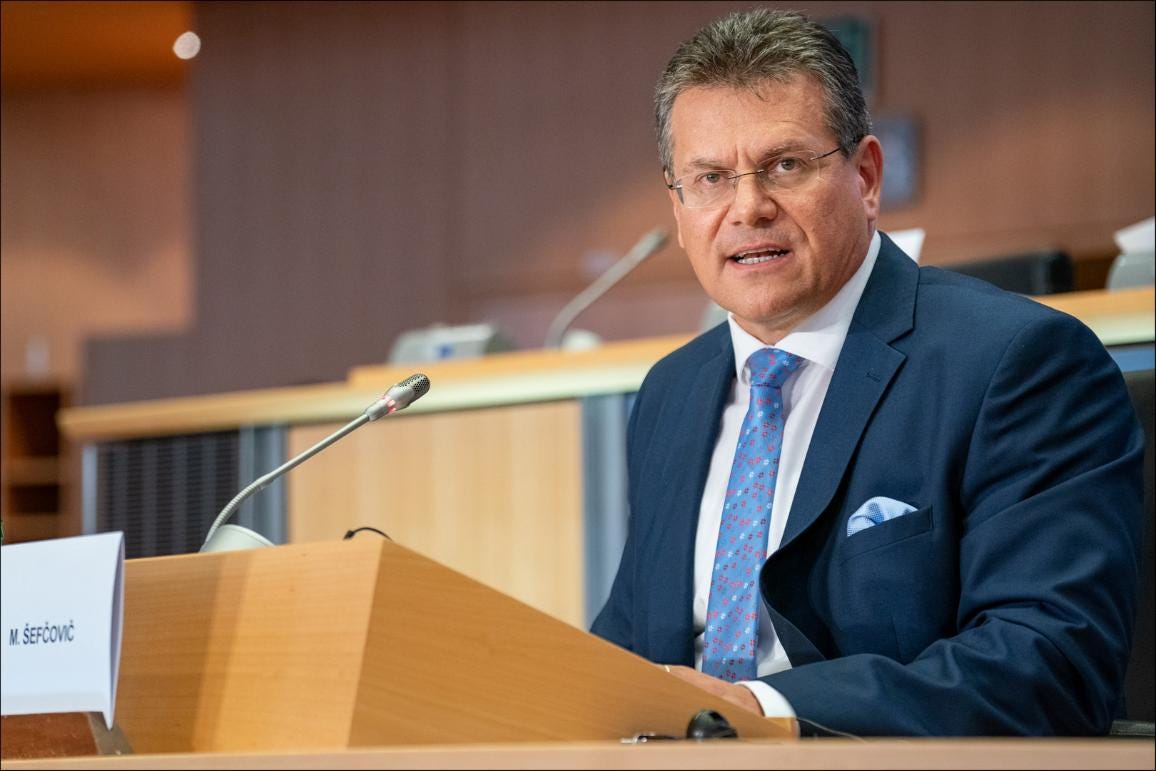Finding Common Ground with new Starmer's UK Government
Following last week’s agreement between the European Commission and the UK Government to hold regular summits, returning contributor Grant Dunnery explores recent developments in EU-UK relations.
Grant Dunnery is an EU Public Affairs Consultant at Whitehouse Communications, which has a presence in both London and Brussels. He serves EU and UK clients across a multitude of sectors, providing EU political insight, policy analysis and stakeholder engagement.
Grant previously worked in Brussels for a financial services consultancy and has a particular interest in EU-UK relations in the post-Brexit context. He interned at the European Parliament Liaison Office in the UK and holds an MA in European Studies from KU Leuven.
Connect with Grant on LinkedIn or to reach out directly at grant.dunnery [at] whitehousecomms.com.
Previously, on EU-UK relations…
Following the meeting last week with European Commission President Ursula von der Leyen in Brussels, UK Prime Minister Keir Starmer signaled cautious optimism for deeper EU-UK cooperation.
This comes at a time when the UK, still navigating the aftermath of Brexit, is looking to redefine its position within the broader European context.
For the most part of a decade now, the UK’s relationship with the EU has been marred by uncertainty and discontent following the 2016 referendum and the subsequent years of negotiation to agree on the Trade and Cooperation Agreement (TCA) that came into effect in January 2021. However, since the Labour Party’s election to government in July, there has been steady and cautious optimism that EU-UK relations will continue the positive trajectory established by the previous UK Government led by Rishi Sunak.
The meeting between von der Leyen and Starmer represents a continuation of the warming of relations as the disenchantment of Brexit begins to fade in the rear-view mirror.
Can summits salvage EU-UK relations?
Since the implementation of the Windsor Framework in February 2023, aimed at resolving trade disputes arising from the Northern Ireland Protocol, the tension that has characterised EU-UK relations has been easing. The ongoing war in Ukraine and escalating geopolitical challenges are also compelling the EU and UK to cooperate more closely on security and defence matters. Both entities have continued to provide military support to Ukraine, illustrating a united front in the face of global threats.
The Labour Party’s manifesto, upon which it was elected in July, emphasises its commitment to maintaining strong ties with the EU, particularly in bolstering security and tackling issues such as human trafficking and smuggling.
Last week, both sides agreed to develop a more coordinated approach to EU-UK relations by holding regular ‘summits’, likely starting from early 2025, although there is no clear detail on what the focus of discussions will be at this stage.
There are already multiple frameworks in place for dialogue below the executive level, such as the Parliamentary Partnership Assembly (PPA) which brings together 35 MEPs with 35 members of the UK Parliament from both the House of Commons and the House of Lords.
Additionally, the Joint EU-UK Financial Regulatory Forum was set up in June 2023 to discuss cooperation on banking and financial services and also convenes biannually, although it will not meet this autumn as previously scheduled due to the European Commission hearings taking place in November.
Once you hit the bottom, you can only go up
The TCA serves as the foundational framework for EU-UK relations and is set to be reviewed in 2026. While Starmer previously criticised the TCA as “too thin” and suggested a desire for deeper integration, recent statements indicate a more tempered approach. The EU, for its part, has indicated that the 2026 review will likely be a routine administrative check rather than a substantive renegotiation.
Nevertheless, the Labour government is expected to pursue several practical agreements, including a veterinary deal to ease post-Brexit border checks, a mutual recognition agreement for professional qualifications, and provisions for UK touring artists to work temporarily in the EU. Although a proposed youth mobility scheme was recently rejected due to domestic political concerns that this could be viewed as facilitating freedom of movement from the EU once again, there remains a possibility that an agreement could be struck in time.
Additionally, there is likely to be continuity in the EU representation for engaging with the EU as Vice-President of the European Commission, Maroš Šefčovič, who was key to striking a deal on the Windsor Framework last year, has been nominated by von der Leyen as Commissioner-designate for Trade and Economic Security; Interinstitutional Relations and Transparency. His mission letter confirms that he would continue to “lead on relations with the United Kingdom”.

Manage your expectations
Over the next few years, we can anticipate a gradual improvement in the substance of EU-UK relations as the disillusionment of Brexit continues to fade.
Geopolitical realities will likely foster greater collaboration in security and defence, while the TCA review in 2026 is expected to yield only minor adjustments to current trading arrangements. The Labour Government appears to instinctively favour closer alignment with its European partners but must bear in mind domestic political calculations to account for the sharp rise in popularity of the Eurosceptic Reform Party clipping at their heels.
On a broader level, both sides are currently reluctant to revisit discussions of Brexit or any prospects of the UK rejoining the EU, indicating that significant shifts in policy or alignment remain unlikely in the near term.
Thanks for reading!
If you liked this piece, why not connect with Grant on LinkedIn, or subscribe to The Beubble?







